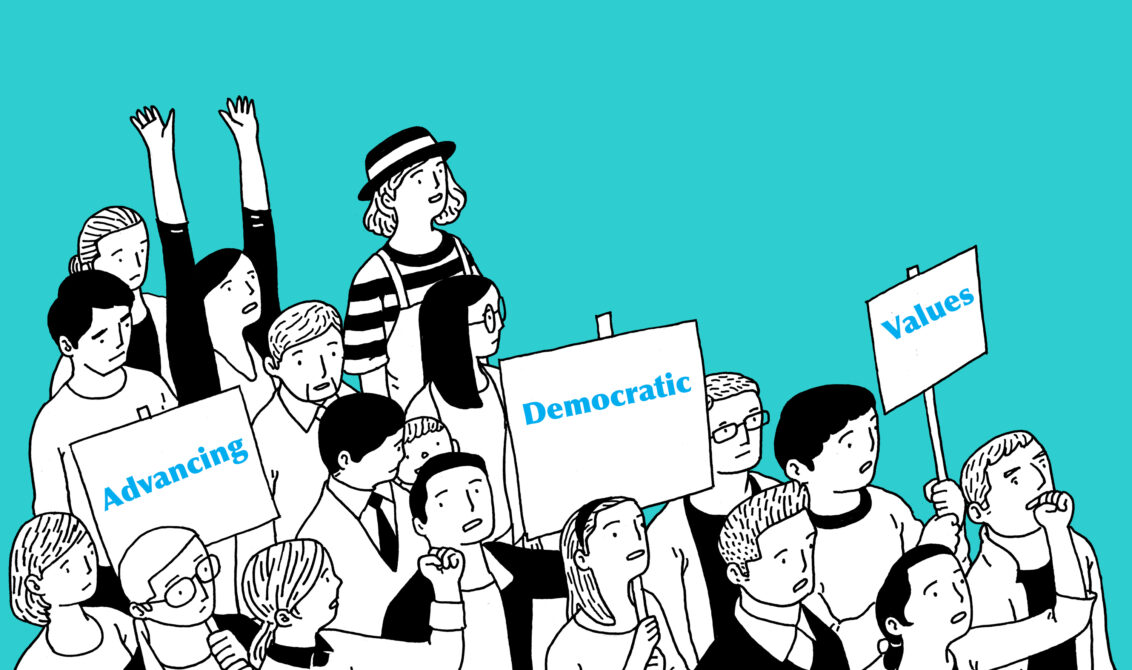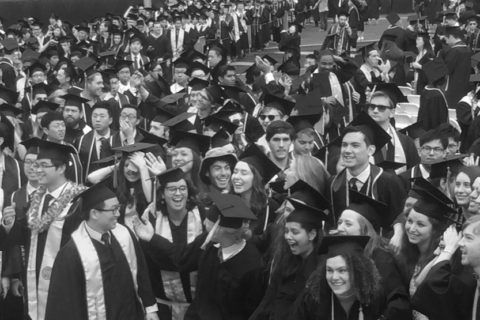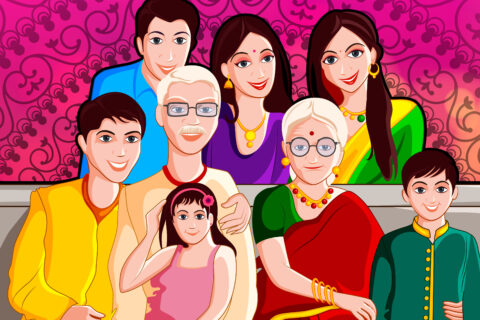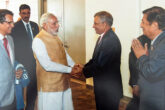
Given the changing trends in national and international order over the past decade, it is crucial to rethink our social and hierarchical governance systems. The most difficult question we face as a country is what the leadership criteria should be and on what bases to elect the right leaders.
As an engineer and businessperson, I don’t have much use for philosophies and conceptual arguments, unless they can lead to better policies, actions, and results. History is useful but it does not always shine a light on the future — accounting for today’s sentiments of the masses.
In the past 100 years, we have armed ourselves with man-made existential threats; nuclear power, viral warfare, and the possible creation of destructive superhumans through gene editing. It is essential to exercise extreme restraint in these domains. Despite the talks, I do not believe generative AI is an existential threat.
Next, we must safeguard and enhance democracy, not just by preserving it but by making it work better for us. Democracy has existed in various forms worldwide. With centuries of experience in the US, it has offered us a social order which promotes inclusiveness and equality and allows superior ideas to surface, through debates and deliberations. As a result, the democratic process can also slow down decision-making, but on average, it yields better progress socially and economically. Yet an autocratic country like China has shown enviable economic progress in the past 50 years. Also, the Manifesto of the Communist Party by Karl Marx and Frederick Engels, in 1848, articulates the idealism of “freeing the whole of society from exploitation, oppression, class struggles in a compelling way.
The success of both liberal democracy and communist autocracy hinges on leadership. While autocratic leadership is driven by power plays, even in a democracy, leaders can manipulate voters. However, studies suggest that the crowd wisdom of democracy statistically works far better. It also allows for easier self-correction — a systemic advantage.
In the institution of democracy, humans have evolved to forgo short-term gratification for possible — not so obvious — longer-term rewards. Living by our values, for example, slows us down but helps us navigate society more effortlessly. It is an evolved behavior.
Democracy without economic progress would not stick. Capitalism is essential for democracy to thrive. Societal order and economic progress are complementary: yin and yang. Together they balance competing factions and foster innovation. Beyond designing better gadgets, it permeates into how we embrace altruism even when we may not directly benefit from it.
Once a taste of democracy is experienced, reverting to any other form of government becomes unthinkable — can’t put the genie back in the bottle. But it can slip away without a proper legal framework, with separation of powers, checks and balances, and mechanisms for oversight and accountability. Ensuring that we operate within the bounds of legality and constitutional principles is necessary to vigorously defend both democracy and capitalism.
It appears that there is a shift in attitudes towards self-interest and personal gain, rather than a focus on fairness, equal opportunities, and inclusiveness for all members of society. Self-interest is motivating and indeed a natural part of human behavior. However, when self-interest is pursued without consideration for the well-being of others it is harder to find common ground for agreements. It needs to be balanced with empathy, ethical considerations, and interdependence of individuals and communities, for promoting the common good.
In a democratic system, free and independent media is crucial for informing the public and holding those in power accountable. Unfortunately, media bias, with conservative or liberal leanings, has become prevalent. It would be inspiring to see a Silicon Valley tycoon passionately fund the development of a fair and credible news media outlet to strengthen our democratic vision. Perhaps Elon Musk could be that hero.
Furthermore, we need more leaders and legislators with real-life experiences in the business world, who understand its workings and challenges, for capitalism to flourish.
Lastly, we should expect our leaders to engage in civil conversations that contribute to a healthy and inclusive exchange of ideas within society, fostering respect, empathy, and cooperation among individuals with diverse perspectives. Also striking a balance between self-interest and concern for others is vital for creating a more equitable, inclusive, and harmonious society.
This column aims to cut through the noise and highlight important issues, much like the signal-to-noise ratio concept in electrical engineering. It seeks to identify the relevant ideas and ideals that will guide my decision-making when casting my vote.








Zubaida Bai
I will definitely quote you on this, I relate as an engineer.. we need to see results… "As an engineer and businessperson, I don’t have much use for philosophies and conceptual arguments, unless they can lead to better policies, actions, and results."
Bharati Ahuja
Nice Post
HEMANT LALL
Timely article, Vinita. One of the most fundamental ideas worth defending is democracy and the freedom that comes with it. Recently, SCOTUS has handed down multiple controversial rulings. If we so believe, we should make our voices heard through appropriate channels. Hemant
Veronica Escamez
Those are good important points you made.
Vijay Gupta
The two biggest threats to democracy are i) the high cost of election campaigns which makes all politicians sell their souls to the highest corporate bidders, and ii) the total financial dependence of mainstream media on ads and their corporate sponsors.
There can be no real democracy when all the major sources of information are strongly biased or corrupted. Moreover, as we learned from ‘Twitter Files’ (thanks to Elon Musk), the federal government has also been coercing Twitter (and other social media) to censor news and opinions that challenge their official narratives.
It is hard, perhaps impossible, to wean the politicians and the media off their corporate sponsors. However, some wealthy entrepreneurs can help strengthen democratic institutions by investing their own wealth wisely and creatively. As Musk tweeted recently, "$44 billion was not the cost of Twitter. It was the cost to restore free speech in a liberal world."
SREEDHAR
Wonderful article at a time when two leaders of the largest democracies in the world were visiting the US and more importantly when elections are due in the US IN JULY AND NOVEMBER 2023! Excellent write up to educate the younger generation!
Valerie
Your ideal comments on Democracy is exemplary. I would love to hear your take on India’s current democratic situation under Modi.
Chandru Bhambhra
Namaste Dear Vinita Ji
Your following paragraph puts it rightly-
“ Lastly, we should expect our leaders to engage in civil conversations that contribute to a healthy and inclusive exchange of ideas within society, fostering respect, empathy, and cooperation among individuals with diverse perspectives. Also striking a balance between self-interest and concern for others is vital for creating a more equitable, inclusive, and harmonious society.“
Regards
Chandru Bhambhra